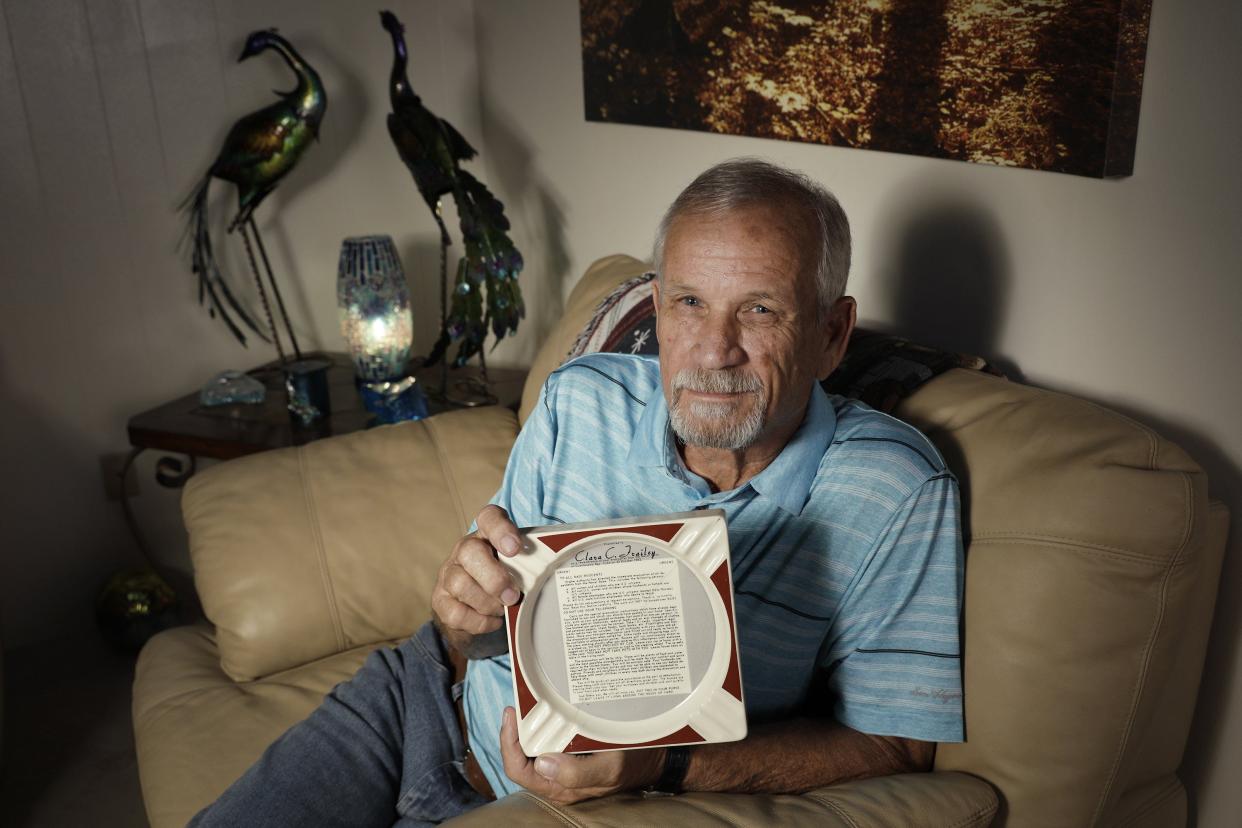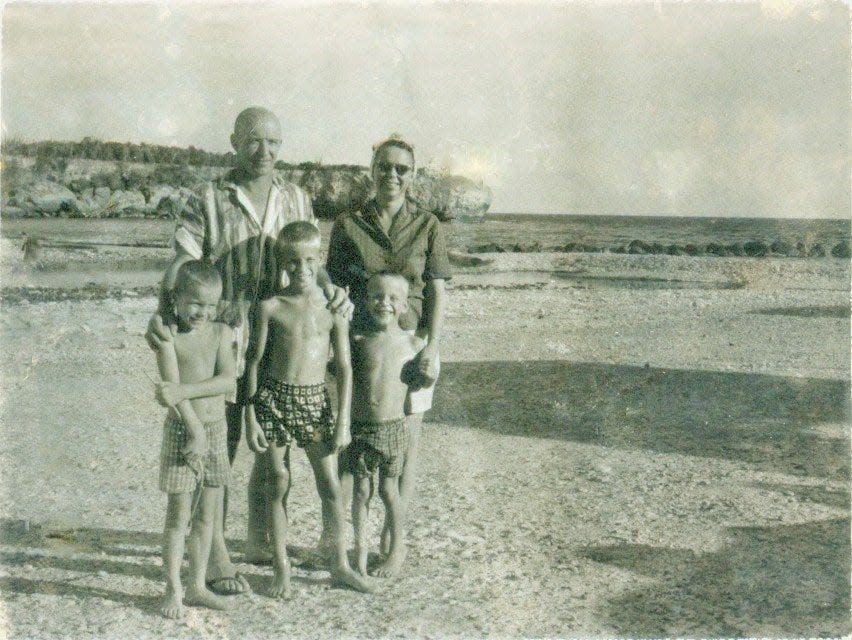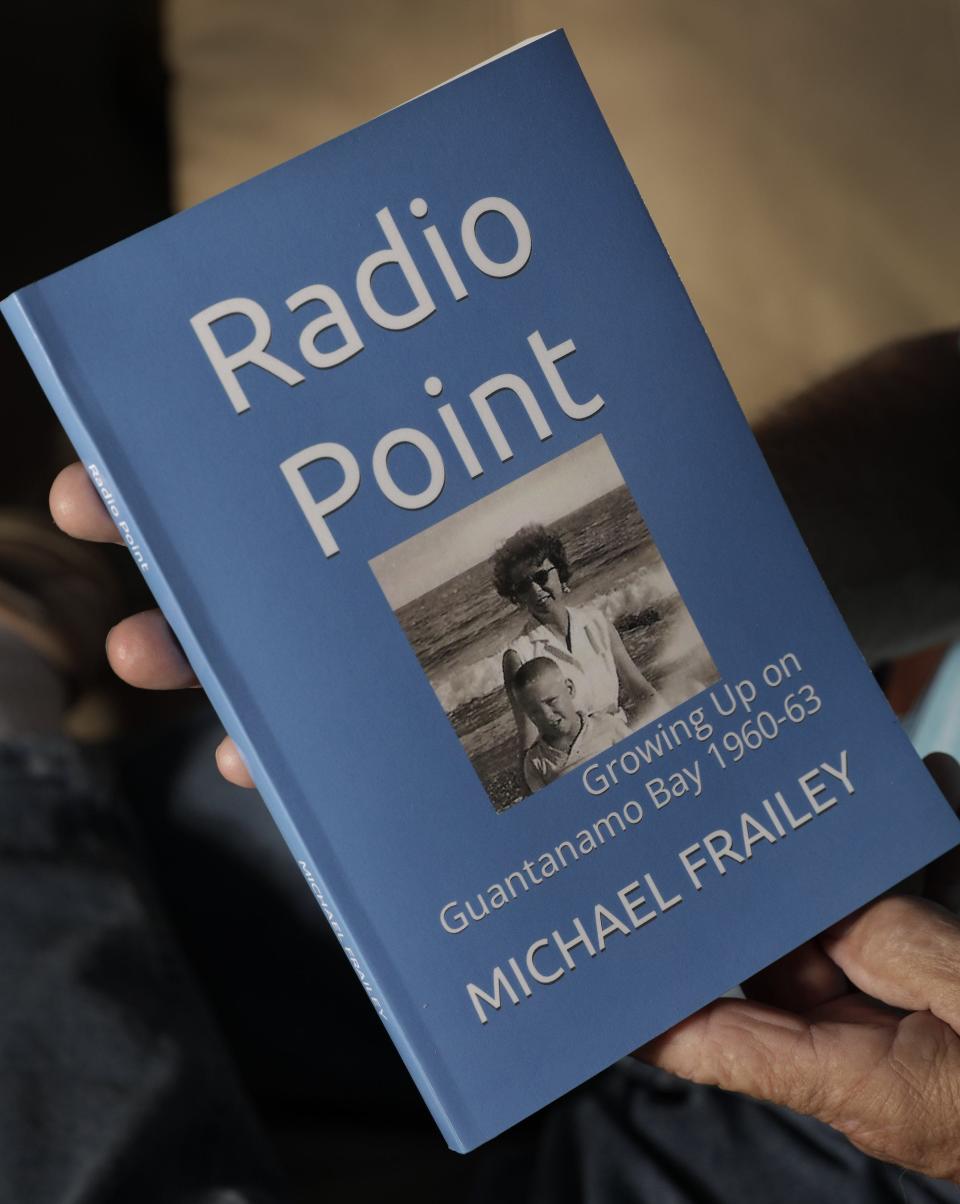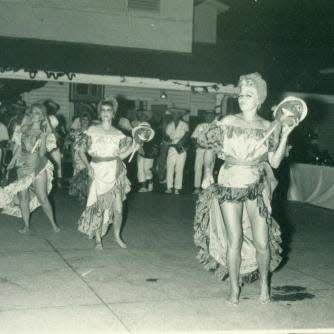Jacksonville man recalls boyhood at Guantanamo Bay, 60 years after Cuban Missile Crisis

In the first years of the 1960s, before the world's mightiest powers came to the brink of nuclear war, the wilds of Guantanamo Bay, Cuba, was a fine place for free-roaming kids such as Mike Frailey and his younger brothers Gary and Duane.
They had the run of the place, except for the off-limits areas on the U.S. naval base there. And they took advantage of that freedom, exploring the beaches, going deep into the woods, sneaking out of their bedroom at night, getting in any manner of mischief.
They were wild, Frailey remembers, and were wrapped up in their boyhood adventures.
But 60 years ago, in October 1962, the grown-up world began to intrude. The adult faces around them turned grim. Their parents began to have deep whispered conversations that broke off when the children came near.
Navy commander at Guantanamo during missile crisis: Not 'biting my nails'
Mike Frailey knew things were tense. What he didn't know then, though, was that his family, and the other families at Guantanamo, were caught at the center of what would become known as the Cuba Missile Crisis.
After spy planes took photos showing Soviet nuclear missiles were being installed in Cuba, President John F. Kennedy ordered the blockade of the Communist country, as well as the evacuation of dependents and civilian employees from the American outpost at the island's southeastern tip.

Frailey, who lives in Jacksonville, is now 70. When that order came through, he was just 10, the son of Julius Frailey, a lieutenant junior grade in Naval Intelligence.
He says he remembers watching as his father ran through a copy machine the secret evacuation order, marked "URGENT," that was hand-delivered to the families at the base. It was at night as his father worked, he remembers, and a slow-moving ceiling fan did little to combat the hot and humid air in the office.
"Higher authority," the letter said, "has directed the immediate evacuation of all dependents from the Naval Base ... Please do not ask questions or request exemptions. There is no time for that ... Please keep calm and carry out all directions given you. The buses are starting their run now. Get your suitcases and children and wait quietly in your front yard when ready. God bless you. We will miss you."
Julius Frailey — known to most as J.R., though his best friends called him Sparky — stayed at the base with the other sailors.
The Gitmo evacuation
Within hours though, his family had left their home at Radio Point on Guantanamo Bay. They were among the more than 1,700 evacuees who boarded the USS Upshur, a troop transport ship bound for Norfolk, Va. Three other ships would follow.
It was Oct. 22, and the lives of those at the base had been upended by the sudden departure. Families had left food on their tables, dishes in the sink, laundry hanging outside. Now they were at sea fleeing with the world in crisis.
On the Upshur, mothers with young children were placed into crowded staterooms. Mike Frailey was old enough to be separated from the rest of this family; his berth would be with other boys below decks, in bunks stacked to the ceiling.
Prison camp journal: With diary revealed, Jacksonville woman tells of reticent father's life as a POW in Germany
Frailey remembers the worried mothers on the ship. "They were terrified," he said. "Sweating bullets.” The boys he hung out with? “To us it was just another adventure," he said.
He wrote about the evacuation in a recently self-published book called "Radio Point: Growing Up in Guantanamo Bay 1960-1963," telling how he and the other boys were put to work: "We swabbed decks, helped peel potatoes, carried the captain's coffee and polished tarnished brass. We even got to toss trash cans full of garbage off the fantail. I can't tell you how much fun that was."

Three days after leaving, the Upshur arrived in Norfolk, Va., as a Navy band played "Anchors Aweigh."
Frailey remembers that it was cold, bitterly cold. He was used to 90 degrees and was wearing a short-sleeved shirt and flip-flops. The American Red Cross handed out hot chocolate and warm clothes for the evacuees; he was given a red, hooded sweatshirt.
The Fraileys went to Jacksonville to live with family, returning to Guantanamo a few months later after the crisis had been averted.
Dictator: Cuba's Fidel Castro, who defied U.S. for 50 years, dies at 90
It felt different, he said. His dog, who had been left behind, didn't seem to recognize him. Their house had been used as barracks for reinforcing troops. Security was tighter, and Jeeps patrolled at night with bright lights on.
Many of his friends hadn't returned; many families were too frightened to go back, after what they'd gone through.
The years afterward
In 1963 Julius Frailey was transferred to Norfolk for a year, then went to Jacksonville, where he bought a trailer park — the first of numerous commercial properties he would acquire. He later served in Vietnam, at a post office in Saigon.
Mike Frailey went to Jacksonville's Paxon High School, then joined the Navy where he served three years. After that, he returned to Florida where he made living selling cars and traveling the country selling tools, often working with his brother Gary. In recent years, he's raised and sold ragdoll cats, a particularly easygoing breed, to people across the country.

In his book, "Radio Point," he tells colorful yarns about the carefree days before the hasty evacuation of Guantanamo Bay. He tells of a visit by entertainers such as Zsa Zsa Gabor and Andy Williams, of his parents' tough love and discipline, and of the times when he and his brothers seemed to have free rein on their little corner of the world.
He's the last of his family left; his parents and brothers all died of cancer. His mother died in 1971, his father in 1996. His brother Duane, who was born with cerebral palsy, died in 1985. Gary died in 2004.
In 2021: Large crowd gathers for Free Cuba demonstration at Cuba Libre at Havana Jax
He's proud, he said, to tell his family's story.
"My brothers, oh, I miss them so much," he writes in his book. "My partners in crime and adventure. They both passed on much too early. I can't help but think they are out there on that reef back at Radio Point waiting on me to join them. When I squinch my eyes, I can see them through the mist."
This article originally appeared on Florida Times-Union: Cuban Missile Crisis at 60: Jacksonville man was at Guantanamo Bay

